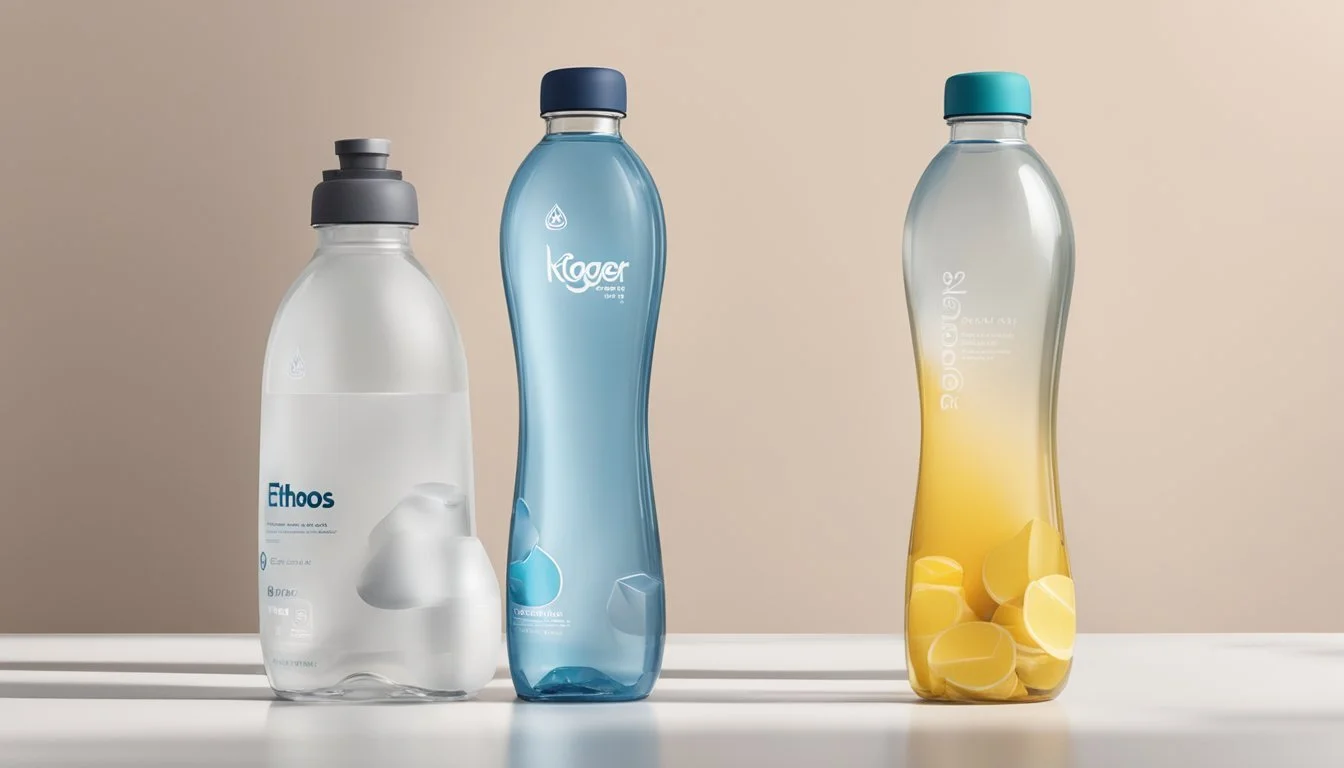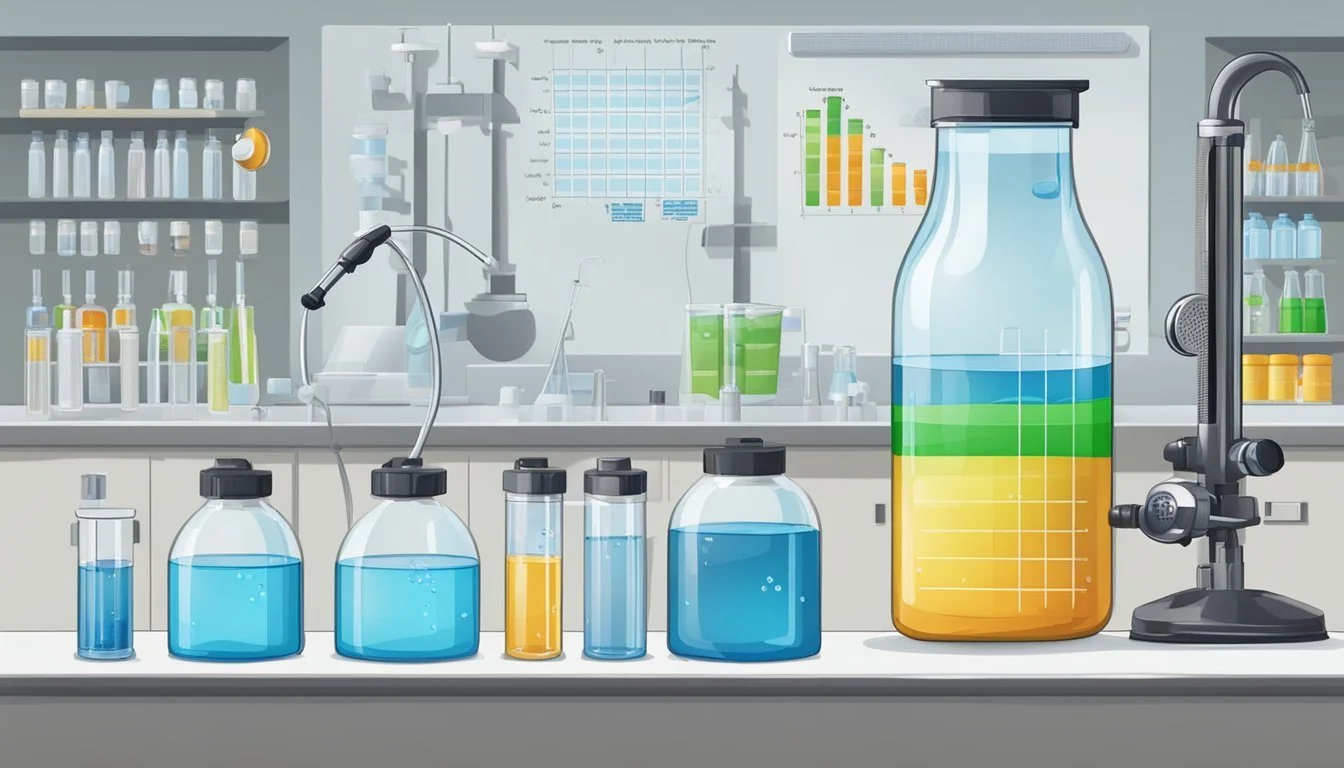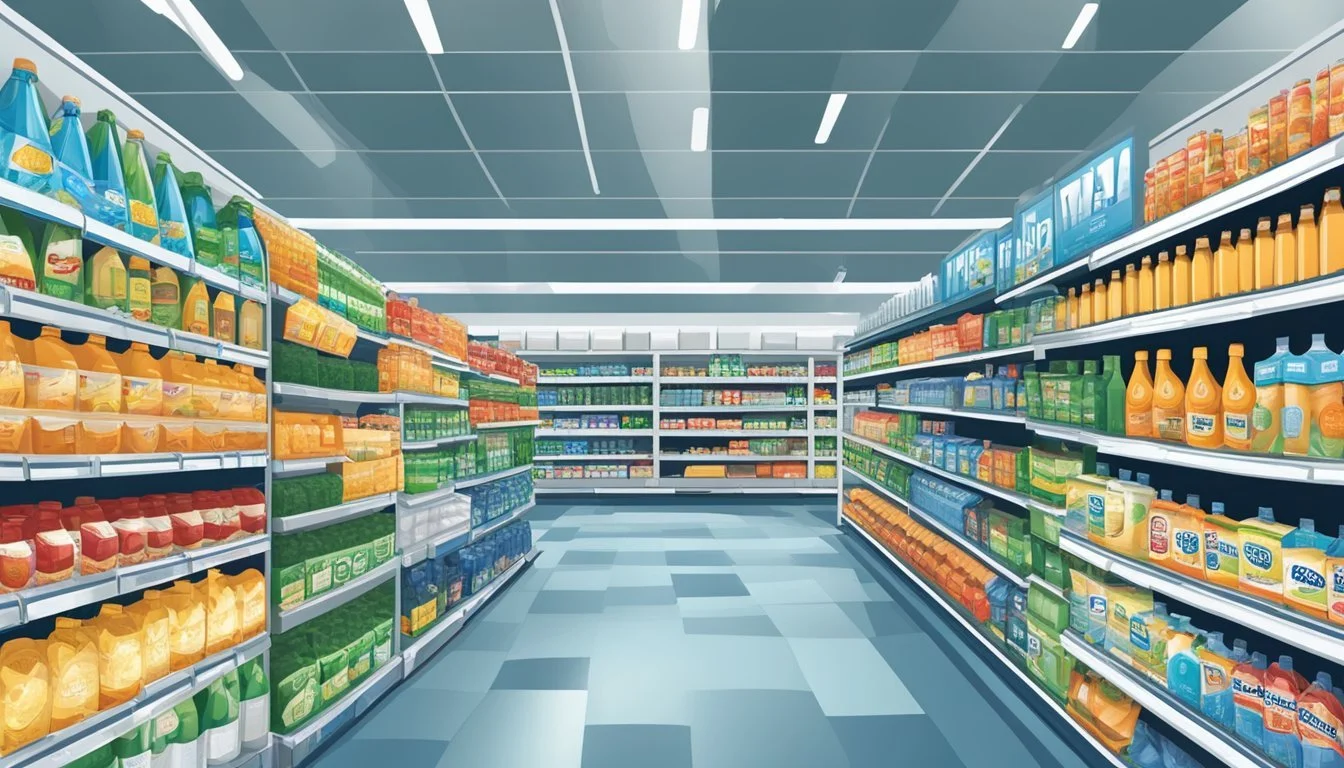Ethos vs. Kroger
Which Bottled Water is Better for You?
When choosing between Ethos and Kroger bottled water, consumers often look for differences in taste, source, and overall quality. Ethos Water is known for its clear, crisp taste and claims of sourcing from high-quality springs. This brand also promotes social responsibility, as a portion of their profits supports clean water projects around the globe.
Kroger's bottled water, in contrast, may not have the same high-profile image but adheres to FDA regulations ensuring safety and quality. While some may question the presence of microplastics and potential contaminants, many of their bottles are now BPA-free, addressing some health concerns.
While Ethos emphasizes its charitable contributions and spring water sources, Kroger appeals to those looking for an affordable, compliant bottled water option. Ultimately, preference may boil down to whether consumers prioritize taste and social impact or cost-effectiveness and regulatory assurance.
Understanding Bottled Water
Selecting the right bottled water can impact both health and the environment. This guide clarifies the different types and their health benefits to help make an informed choice.
The Basics of Bottled Water
Bottled water comes from various sources and undergoes different treatment processes. Common sources include natural springs, wells, and municipal tap water.
While all bottled water must meet safety standards regulated by the FDA, the treatment process varies. Spring water is collected from natural springs, often containing minerals. Purified water, usually sourced from municipal supplies, is treated to remove impurities. Labels often specify the source and treatment, providing consumers with essential information.
Types of Bottled Water
There are several types of bottled water:
Spring Water: Sourced from underground springs, containing natural minerals.
Purified Water: Subjected to purification processes like distillation, deionization, or reverse osmosis.
Mineral Water: Must contain a minimum of 250 parts per million of total dissolved solids from natural sources.
Alkaline Water: Has a higher pH level, achieved naturally or through ionization.
Sparkling Water: Contains dissolved carbon dioxide, making it fizzy.
These types cater to different taste preferences and dietary needs.
Health and Hydration
Hydration is crucial for maintaining overall health, and bottled water provides a convenient way to stay hydrated. Unlike some tap water, bottled varieties can be free of contaminants like chlorine or lead.
Mineral water provides electrolytes, beneficial post-exercise. Purified water offers a clean taste, appealing to those sensitive to tap water flavors. Alkaline water may help neutralize acidity in the body, although scientific support is limited.
Consumers should choose based on personal health needs, taste preferences, and environmental considerations, such as choosing recyclable packaging. The right type of bottled water can enhance hydration and overall well-being without compromising on quality.
Comparing Ethos and Kroger Bottled Water
Ethos and Kroger bottled water brands differ in several aspects, including their source and purity, taste and mineral content, packaging sustainability, and pricing and availability.
Brand Profiles
Ethos is a brand that not only focuses on providing bottled water but also emphasizes its charitable contributions to clean water initiatives globally. This adds a sense of purpose to their product.
Kroger, on the other hand, is primarily known for its grocery stores and offers bottled water under its private label. The focus here is more on meeting consumer needs with affordable, readily available options.
Source and Purity of Water
Ethos bottled water often comes from natural springs. This ensures a level of purity that is appealing to health-conscious consumers.
Kroger's bottled water adheres to FDA regulations, ensuring safety and quality standards. However, the source of Kroger water can vary, making it critical for consumers to check labels for specific details on water origin.
Taste and Mineral Content
Ethos water is known for having a clean, refreshing taste. Its mineral content is balanced, contributing to a smooth drinking experience. The taste can be a key factor for consumers who are particular about the flavor profiles of their water.
Kroger water, while safe and reliable, may exhibit slight variations in taste depending on its source. The mineral content is generally lower, which can make it taste more neutral.
Packaging and Environmental Impact
Ethos prioritizes sustainability by using recyclable materials in their packaging. This aligns with a broader industry trend towards reducing plastic waste and promoting environmental responsibility.
Kroger bottled water has also transitioned to BPA-free plastic bottles, addressing some health concerns. However, their environmental impact remains an issue due to the large-scale production and consumption associated with a major grocery chain.
Pricing and Availability
Ethos water tends to be priced higher due to its premium branding and charitable initiatives. It is widely available in specialty stores and some grocery chains but may not be as ubiquitous as other brands.
Kroger bottled water is generally lower in price, making it a budget-friendly option. Availability is broad, with the product found in Kroger grocery stores and other affiliated convenience stores, ensuring easy access for a wide range of consumers.
Analyzing Water Quality and Safety
When comparing Ethos and Kroger bottled water, it's essential to examine aspects such as regulatory standards, filtration and purification processes, and contaminant levels to understand which brand provides safer and higher quality water.
Regulatory Standards
Both Ethos and Kroger bottled water must comply with FDA regulations. The FDA oversees bottled water standards to ensure consumer safety, setting limits on the levels of contaminants that bottled water can contain.
While the FDA sets these federal standards, local sources may vary. EPA regulations govern tap water, which can sometimes be the source for bottled water. Therefore, ensuring alignment with these standards is critical for both brands.
Ethos positions itself as a premium product with stricter standards than required, targeting health-conscious consumers. Kroger follows FDA guidelines, but the emphasis on cost-effective production may impact stringent adherence to additional quality standards.
Filtration and Purification Processes
Ethos employs multiple filtration steps, often incorporating reverse osmosis, carbon filtration, and UV light treatment. This multi-step process aims to remove impurities effectively and enhance water taste and safety.
Kroger's filtration procedures aim to meet FDA minimum standards. While the specific processes may vary, typical steps include basic carbon filtration and ozonation. Some Kroger bottles are BPA-free, addressing concerns about plastic contamination.
Analyzing both brands, Ethos seems to invest more in advanced purification methods compared to Kroger, which favors functional but possibly less rigorous processes.
Contaminant Levels and Safety
Contaminant testing is vital for ensuring safety. Ethos claims to maintain low levels of contaminants by sourcing water from protected springs and subjecting it to extensive filtration. Tests generally reveal minimal levels of common contaminants such as microplastics and BPA.
Kroger has faced scrutiny for possible contaminants, though it adheres to FDA limits. Concerns about microplastics and chemicals like strontium have been raised. Studies show varying results, and Kroger has taken steps to reduce such issues, including transitioning to BPA-free bottles.
Ethos offers superior safety measures for consumers worried about contaminants, while Kroger meets basic federal guidelines but may present more variability in quality.
Environmental Considerations and Sustainability
Ethos and Kroger bottled water brands differ significantly in their approaches to environmental sustainability and ecological impact. Key differences include the materials used for their bottles, the sourcing of their water, and the broader sustainability efforts of the companies.
Bottle Materials and Recycling
Ethos and Kroger both use recyclable plastic bottles for their products, primarily made from polyethylene terephthalate (PET). PET is commonly recycled but still contributes to pollution if not properly managed.
Ethos highlights its commitment to environmental sustainability through the use of BPA-free bottles, reducing health risks associated with bisphenol A exposure. Kroger has also moved towards BPA-free packaging to ensure consumer safety and environmental responsibility.
In addition, Ethos makes efforts to incorporate recycled materials in its bottles, while Kroger has yet to achieve noticeable strides in this area.
Water Sourcing and Ecosystem Impact
Ethos sources its water from natural springs, aiming to minimize its ecological footprint. By choosing springs that renew naturally, Ethos strives to maintain ecosystem balance and promote conservation.
Kroger's sourcing strategy is less transparent, often relying on municipal water supplies. This practice can be more resource-intensive and may not align with natural sustainability principles. Municipal sources can affect the local environment and groundwater levels, raising concerns about their long-term impact.
Ethos additionally supports clean water initiatives, reflecting its broader environmental commitments, while Kroger's efforts in this realm are less prominent.
Brands and Sustainability Efforts
Both brands have initiatives focused on sustainability, but their scopes and impacts vary. Ethos, owned by Starbucks, emphasizes its dedication to global clean water projects. Purchases of Ethos water contribute to initiatives that provide clean water access to communities in need.
Kroger's efforts are outlined in its Environmental, Social & Governance (ESG) report, which details various sustainability goals, including waste reduction and improved packaging. Despite these efforts, Kroger's approach appears to be more corporate-driven rather than grassroots.
Ethos stands out with its targeted initiatives and partnerships, while Kroger maintains a broader but potentially less impactful strategy.
Consumer Experience and Convenience
Ethos and Kroger bottled waters differ in design, consumer preferences, and accessibility. These elements play a significant role in how consumers perceive and interact with these beverages, affecting their overall choice.
Bottle Design and Convenience Features
Ethos bottles emphasize both aesthetics and function. They use recyclable materials and are designed to appeal to environmentally-conscious consumers. The bottles are easy to hold and drink from, with secure caps that prevent leaks.
Kroger bottles prioritize practicality. Available in various sizes, they are suited for different consumption occasions. Their design may not stand out visually, but the focus is on affordability and functionality, making them convenient for everyday use.
Consumer Preferences and Drinking Experience
Consumers report that Ethos water has a crisp, clean taste, often attributed to their source and processing methods. Brand loyalty is strong due to Ethos' commitment to charitable causes and sustainability, enhancing the overall drinking experience.
Kroger water, while reliable and cost-effective, may sometimes face criticisms related to taste and potential plastic residues. However, it remains a popular choice for budget-conscious consumers who prioritize accessibility and safety over premium taste.
Accessibility and Market Reach
Ethos water targets niche markets, especially in upscale locations and stores that emphasize organic and sustainable products. Its market reach, while expanding, remains more concentrated in specific regions and retail settings.
Kroger water benefits from being distributed through a vast network of Kroger stores nationwide. This extensive reach makes it easily accessible to a wide range of consumers. Convenience stores frequently stock Kroger water, ensuring it is a ready choice for many.
Ethos and Kroger cater to different market segments, each offering unique benefits tailored to their audiences.
Market Comparison and Consumer Choices
Ethos and Kroger are two prominent players in the bottled water market, each with distinctive qualities and consumer responses. A detailed look reveals what sets them apart and how consumers rank their preferences.
Comparative Analysis of Market Offerings
Ethos targets environmentally conscious consumers and advocates for global water initiatives. Originating from natural sources, Ethos emphasizes sustainability, with part of its revenue supporting clean water projects. Kroger offers an affordable alternative, sourcing water from municipal supplies and focusing on accessibility and mass production.
Ethos water often commands a higher price point due to its mission-driven branding. Kroger water competes on price, making it a popular choice for bulk purchases.
Quality reports and taste tests occasionally place Ethos ahead of Kroger. Ethos is noted for its clear taste without any chemical traces, contrasting with Kroger, sometimes cited for a subtle aftertaste.
Consumer Power Ranking and Preferences
Ethos trends well among consumers who prioritize social causes and are willing to spend more. Consumers often express satisfaction with the taste and quality of the water. It also aligns well with the likes of Fiji, Evian, and Voss for those sensitive to source and purity.
On the other hand, Kroger resonates with budget-conscious buyers who seek dependable quality at a lower price point. This affordability factor often places Kroger water on many household shopping lists, similar to Nestlé Pure Life and Poland Spring.
Given the choice, consumers may opt for Ethos when they want to support a cause or prioritize taste. Kroger wins in scenarios where cost-efficiency is key, reflecting consumer behaviors and economic considerations.
More About Ethos
Ethos vs Mountain Valley Spring Water: Which Bottled Water is Better?
Ethos vs Richard's Rainwater: Which Bottled Water is Better?
Ethos vs Whole Foods Italian Still Mineral water: Which Bottled Water is Better?




